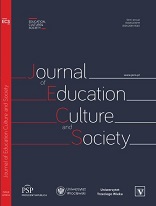Stigmatized by language – representations of people with disability in Poland and the United States
Stigmatized by language – representations of people with disability in Poland and the United States
Author(s): Anna ŚlebiodaSubject(s): Semiotics / Semiology
Published by: Fundacja Pro Scientia Publica
Keywords: disability; the Other; Stigma; language
Summary/Abstract: Language is one of the elements that create reality. The following paper aims at showing the role of particular languages in constructing the image of disability. Speaking in a particular way, people portray different items, persons etc. The process of the construction may result in shaping varied attitudes and emerging different labels. The paper is a comparison of words used in the field of disability in two countries: Poland and the United States. The vocabulary comes from two sources: in the case of Poland it is the website niepelnosprawni.pl while in the case of the United States – the resources of Disability History Museum, which are available online. There are two reference points for the analysis. The first one is the Stigma concept by Erving Goffman. It implies stereotyping and labeling. On the other side there is the Other – the idea by Emmanuel Levinas. In turn, the basis of his approach are respect and love. The paper aims at demonstrating in which country the vocabulary used is closer to the Levinas` theory. It is also a try to show where the usage of words may be more challenging.
Journal: The Journal of Education, Culture, and Society
- Issue Year: 4/2013
- Issue No: 2
- Page Range: 404-412
- Page Count: 9
- Language: English

